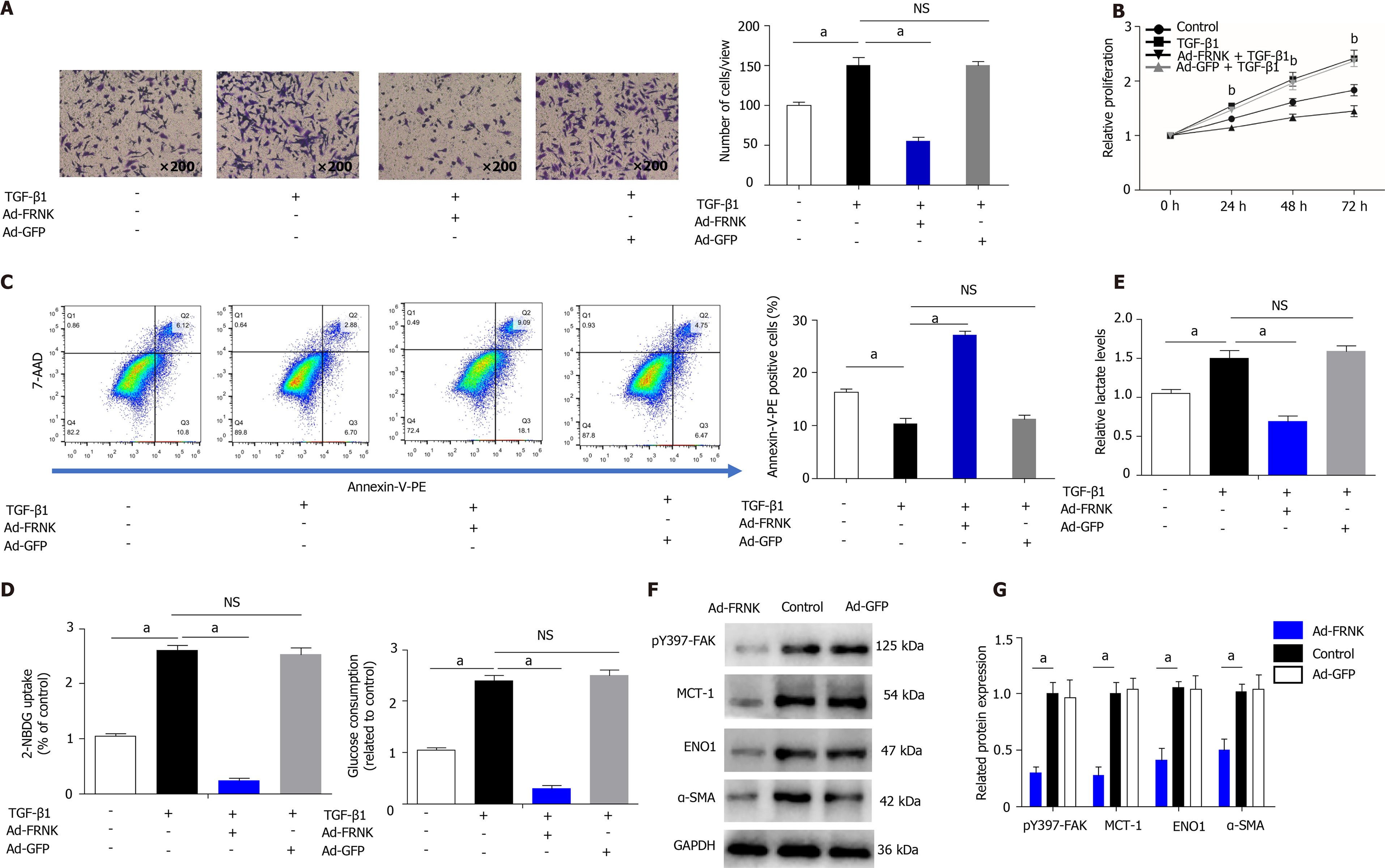Copyright
©The Author(s) 2022.
World J Gastroenterol. Jan 7, 2022; 28(1): 123-139
Published online Jan 7, 2022. doi: 10.3748/wjg.v28.i1.123
Published online Jan 7, 2022. doi: 10.3748/wjg.v28.i1.123
Figure 4 Exogenous FRNK ameliorates experimental liver fibrosis and aerobic glycolysis in vitro.
LX-2 cells were transfected with a green fluorescent protein-carrying adenoviral vector (Ad-GFP) also encoding the FRNK gene. A: Cultured with TGF-β1 (2 ng/mL) for 36 h (105 cells per well). Migration was measured by analyzing cells under a light microscope × 200 magnification; B: The proliferation of LX-2 cells cultured under the intervention conditions is presented; C: The apoptosis of LX-2 cells was analyzed after 36 h of intervention using flow cytometry; D and E: LX-2 cells cultured under the same intervention conditions were examined for glucose consumption and uptake abilities, and lactate levels in the cell culture medium were also assessed; F and G: Levels of pY397-FAK, MCT-1, ENO1 and α-SMA in LX-2 cells were detected using Western blotting. Representative results from three independent replicate assays are shown . aP < 0.05 and bP < 0.01. Results are presented as the mean ± SD.
- Citation: Huang T, Li YQX, Zhou MY, Hu RH, Zou GL, Li JC, Feng S, Liu YM, Xin CQ, Zhao XK. Focal adhesion kinase-related non-kinase ameliorates liver fibrosis by inhibiting aerobic glycolysis via the FAK/Ras/c-myc/ENO1 pathway. World J Gastroenterol 2022; 28(1): 123-139
- URL: https://www.wjgnet.com/1007-9327/full/v28/i1/123.htm
- DOI: https://dx.doi.org/10.3748/wjg.v28.i1.123









